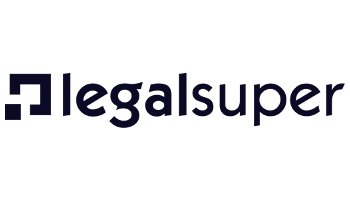In June this year, the Treasury Laws Amendment (Your Future, Your Super) Bill 2021 (YFYS Bill) was passed in the Senate and received Royal Assent. As a result, the Federal Government brought “Your Future, Your Super” into effect and over the last six months, Australians have begun to see the effects of this YFYS Bill.
The YFYS Bill included several significant changes to the superannuation sector with the arrival of Your Future, Your Super perhaps the most meaningful change to superannuation laws since the early 1990s and the implementation of mandatory super. With so much change rapidly unfolding, it is important to stay informed of changes that affect employers and individuals alike.
The intended goal of Your Future, Your Super is to radically increase transparency and accountability for how superannuation funds use members’ money. Additionally, Your Future, Your Super holds super funds to account for underperformance and empowers individuals by making it as easy as possible to choose a well-performing fund that meets their needs.
Employers and employees now have greater visibility over how their super fund is performing compared to other funds. The YFYS Bill also made other important changes to super, including giving employees more control over which super fund they belong to through ‘stapling.’

Super fund stapling
Stapling is the prevention of unintended multiple accounts (otherwise known as “stapled funds”). Simply put, this means that an employee’s superannuation account will stay with them when they change employers. If an employee changes jobs, their new employer is required to pay Super Guarantee (SG) payments into the employee’s stapled fund unless the employee completes a ‘Choice of Fund’ form nominating a different super fund. If an employee does not have a stapled fund (for example, when an employee first enters the workforce) and does not make a ‘Choice of Fund’ selection, the employer may make the SG payments into an account set up with the employer’s default fund.
In light of these changes, employers may need to make changes to their onboarding process to ensure that an employee’s stapled fund is used to make SG payments. If a new employee does not make a choice of superannuation fund when commencing their employment, employers will need to contact the Australian Taxation Office (ATO) using their online service to see if the employee has a stapled fund. If they do, the employer must make SG payments into the stapled fund and may not open an account for the employee with the employer’s default fund. If the new employee does not have a super account or does not actively choose a new fund, the employer can make the SG payments into the employer’s default fund.
YourSuper super fund comparison tool
Transparency is offered through the YourSuper comparison tool which the ATO will be responsible for running. This tool will enable the public to view the fees and performance of superannuation products. Super products will be ranked on the website, complete with regulations to outline how these rankings will be formulated. The Australian Prudential Regulation Authority (APRA) will provide relevant information and data for the ATO to publish the rankings.
The rollout of this tool will see employees being notified of underperforming funds and being directed to compare funds using the YourSuper tool. The tool compares the performance of funds and helps the employee make an informed decision on what will be the best option for them. APRA will also be responsible for conducting annual performances tests on all funds and funds that fail must notify their members. Importantly, if funds fail two years running, they will be unable to accept new members.
Other key changes
Finally, the Superannuation Industry (Supervision) Act 1993 has been amended to impose a new ‘best financial interests’ duty’ (formerly “the best interests’ duty”) on trustees of a registrable superannuation entity (RSE) and trustees of a self-managed super fund (SMSF). The duty requires trustees to carry out their duties and powers in the best financial interests of their members. This means that superannuation trustees will now need to consider whether their operational activities and decisions are in the ‘best financial interests’ of members, not just ‘best interests’ of members more broadly.
legalsuper is here to help
As an employee or employer, if you would like to meet with legalsuper to discuss any of the above changes or anything else to do with your super, our team is available for 1-to-1 tailored information and support consultation sessions. We also provide free workplace briefings for management and staff.
Please contact us via mail@legalsuper.com.au or on 1800 060 312, 8am-8pm (AEST), Monday to Friday to book an appointment.
Legal Super Pty Ltd ABN 37 004 455 789 is the Trustee of legalsuper ABN 60 346 078 879 and holds Australian Financial Services Licence No. 246315 under the Corporations Act 2001. The information contained in this document is of a general nature only and does not take into account your objectives, financial situation or needs. You should therefore consider the appropriateness of the information and obtain and read the relevant legalsuper Product Disclosure Statement (available at legalsuper.com.au or by calling 1800 060 312) before making any decision in relation to legalsuper. Past performance is not a guide to future performance.



